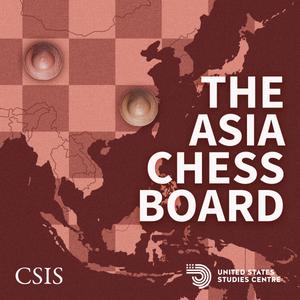
The Asia Chessboard
Center for Strategic and International Studies
The “Asia Chessboard” features in-depth conversations with the most prominent strategic thinkers on Asia.
- 34 minutes 49 secondsTaiwan Decides: Assessing Taiwan’s Presidential Election
This week, Mike and Jude discuss the recent presidential legislative elections in Taiwan with Richard Bush, Nonresident Senior Fellow at the Brookings Institution and the former chairman and managing director of the American Institute in Taiwan.
2 April 2024, 11:00 am - 34 minutes 20 secondsA Journalist’s Take on the U.S.-China Relationship
Mike and Jude are joined by Demetri Sevastopulo, US-China Correspondent at the Financial Times. Demetri discusses covering China as a member of the news media and of what it takes to break news on China in a competitive market. Jude, Mike, and Demetri then exchange views on US-China relations today, including recent bilateral diplomacy and evolving cross-Strait dynamics. Next, they turn to debate on the US-China relationship in Washington, exploring the nature and bounds of bipartisan “consensus” on China. They conclude by discussing how nations around the world are viewing the US election.
12 March 2024, 11:00 am - 39 minutes 42 secondsThe State of the US-India Relationship
Mike is joined by Lisa Curtis, Senior Fellow and Director of the Indo-Pacific Security Program at the Center for a New American Security. The conversation begins with a review of the contemporary and historical factors encouraging India and the United States to expand their partnership. Next, they examined the remaining hurdles for the relationship, including the recent Sikh assassination plots. They conclude by discussing the perception of democratic backsliding in India and the role of India’s foreign policy choices in shaping US-India relations.
27 February 2024, 5:34 pm - 37 minutes 37 secondsAustralia’s Economic Future in a Shifting Geo-economic Landscape
Mike is joined by Dr. John Kunkel, Senior Economics Adviser at the United States Studies Centre. Dr. Kunkel has worked as an economist, speech writer, policy analyst, and adviser to government and industry executive and previously served as Chief of Staff to Australian Prime Minister Scott Morrison. He has a PhD in Economics from the Australian National University and is the author of "America's Trade Policy Towards Japan: Demanding Results", a study of US-Japan trade relations from Reagan to Clinton.
The conversation begins by placing the Australian economy amid the shifting economic order of recent years. Mike and John note that the contemporary Australian debate has come late in adapting to these global economic changes, partially due to the country’s large resource base and overall economic resilience and flexibility. They discuss the unique position of Australia’s experience with globalization, which allowed it to avoid the worst of the domestic economic drawbacks that afflicted Europe and the United States. They then delve into the impact of ‘Bidenomics’ and US industrial policy on the economic debate in Australia, assessing how Australia is looking at these more protectionist policies to understand both the wrinkles and opportunities they present. After a discussion of evolving global economic dynamics and what a new American trade agenda should look like, they conclude by discussing an upcoming economic security conference in Australia, which is targeted at interpreting different international economic security policies, and tracking how these are transitioning over time.
13 February 2024, 5:36 pm - 38 minutes 6 secondsSoutheast Asia in a Shifting Global Order
Mike is joined by Dr. Joseph Chinyong Liow, the Tan Kah Kee Chair of Comparative and International Politics at Nanyang Technological University, where he is also a Research Advisor for the S. Rajaratnam School of International Studies.
The conversation begins with a review of the state of U.S.-China strategic competition in the aftermath of APEC 2023, and underscores regional discontent with the perceived lack of commitment from the United States to economic ties and international trade in the Indo-Pacific. They then turn to Singapore’s grand strategy that seeks to advance its interests amidst the discernible signs of escalating conflict among global powers and the ongoing transformation of the global order. Next they examine the new emphasis on ideological concerns in the foreign policy choices of states in the region. Finally, they conclude by discussing the conflict in Gaza and reactions in Singapore and the region.
2 January 2024, 3:35 pm - 42 minutes 41 secondsCold Rivals
Mike and Jude are joined by Evan Medeiros, Penner Family Chair in Asian Studies and the Cling Family Senior Fellow in US-China Relations at Georgetown University. He is also a Senior Advisor with The Asia Group and previously served for six years on the staff of the National Security Council as Director for China, Taiwan and Mongolia - and then as Special Assistant to the President and Senior Director for Asia. He is editor and contributing author to the recent book Cold Rivals: The New Era of US-China Strategic Competition.
The conversation begins by evaluating the relative successes and failures of U.S. engagement toward China over previous decades and the state of the U.S.-China relationship. They review the field of China studies in the United States, exploring how it has adjusted in recent years in response to a changing China and evolving bilateral ties. After assessing the effects of Xi Jinping’s arrival on China’s political stage on bilateral relations and the current state of crisis communications between the U.S. and China, they conclude by forecasting the what the relationship will hold in the coming years and the challenges and pitfalls of managing strategic competition.
19 December 2023, 2:48 pm - 45 minutes 35 secondsThe Sino-Russian Strategic Alignment
Mike and Jude are joined by Sergey Radchenko, the Wilson E. Schmidt Distinguished Professor at the Johns Hopkins School of Advanced International Studies. Sergey is an accomplished author, and has written extensively on the Cold War, nuclear history, and on Russian and Chinese foreign and security policies.
The conversation begins by delving into the nature of Beijing’s ties with Moscow, and how they have evolved from the Cold War. They explore points of divergence in the interests of China and Russia, and assess how both countries have reacted to frictions in the relationship over time. Next, they turn to the war in Ukraine, examining to what extent tightening Beijing-Moscow ties might have affected Putin’s ultimate decision to invade, and then discuss China’s strategic interests in how the conflict ends. Finally, they discuss ideological alignment between China and Russia, and how each state aims to shape the global order, before briefly considering the scope of Russia’s likely responses to escalating tensions between the U.S. and China in Asia.
5 December 2023, 2:48 pm - 41 minutes 45 secondsVietnam’s Great Power Hedge
Mike and Jude are joined by Huong Le Thu, Deputy Director of the Asia Program at the International Crisis Group. She is also an Adjunct Fellow with the Southeast Asia Program at CSIS and a former senior fellow at the Australian Strategic Policy Institute. Her research on Vietnam’s defense and foreign policy, Southeast Asia’s security, ASEAN regionalism, and China-Southeast Asia relations has featured in a wide range of publications.
The conversation begins with an overview of Vietnam’s geostrategic landscape, exploring how the strategic thinking of its political leaders has matured over the recent years and months. Next, they describe Vietnam’s recent attempts to leverage competition between China and the United States to its advantage. They delve into the drivers behind Vietnam’s recent decision to upgrade its relationship with the United States to a comprehensive strategic partnership and review areas in which Chinese inroads in South and Southeast Asia may be underappreciated in the West. They then explore the ways in which Vietnam is adopting an omnidirectional foreign policy, seeking to improve its resilience by buttressing relations with as many partners as possible. Finally, they discuss the evolving role Vietnam envisions for ASEAN as it broadens its partnerships outside the region.
31 October 2023, 11:00 am - 41 minutes 21 secondsJapan’s Approach to De-Risking
This week, Mike and Jude are joined by Mr. Tatsuya Terazawa, Chairman and CEO of the Institute of Energy Economics, Japan. Previously he served as the Senior Advisor of the Cabinet Office of Minister Yasutoshi Nishimura. Earlier he served at the Ministry of Economy, Trade and Industry (METI) of Japan where he held leading positions including the Vice-Minister for International Affairs. He is also the Senior Specially Appointed Professor at the Tokyo University of Science, where he teaches international negotiations.
The conversation begins by examining how Tokyo is approaching de-risking and technology competition. They describe Japan’s early experiences facing economic coercion as a driving force behind its development of an economic security strategy. Next, they explore China’s role in the clean energy transition, emerging policy responses to its control of key inputs in the West, and the approaches U.S. and allied governments need to pursue to stay competitive. They note the importance of better coordination among stakeholders involved in climate politics, energy policies, and economic security. After discussing the dispute between China and Japan over the release of wastewater from the Fukushima nuclear facility, they end by examining the difficult balancing act of taking measures to reduce national CO2 emission while safeguarding partner state business interests.
3 October 2023, 3:57 pm - 45 minutes 15 secondsMyanmar’s Closing
This week, Mike and Jude are joined by Erin Murphy, Deputy Director and Senior Fellow for the Economics Program at the Center for Strategic and International Studies (CSIS), where she is currently transitioning to the Asia Program. Erin's career has so far spanned public and private sector roles, including as an analyst on Asian political and foreign policy issues at the Central Intelligence Agency, director for the Indo-Pacific at the U.S. International Development Finance Corporation, and founder and principal of a boutique advisory firm focused on Myanmar. She is also the author of Burmese Haze: US Policy and Myanmar's Opening-and Closing (Association for Asian Studies, 2022).
The conversation begins by examining the state of affairs in Myanmar, including the lead up and aftermath of the 2021 military coup. Next they explore Myanmar’s relationship with China and the degree of Beijing’s policy influence over the the current leadership. They observe Myanmar’s evolving relationships with India and Japan, before turning to consider the space available for China to make common cause with other countries in the region to address some of the problems unfolding in Myanmar. They conclude by discussing the impact of the ongoing crisis in Myanmar on ASEAN, and surveying Myanmar’s possible trajectories in the medium and long term.
19 September 2023, 3:23 pm - 46 minutes 25 secondsIndia’s Strategic Evolution
This week, Mike and Jude are joined by C. Raja Mohan, Senior Fellow with the Asia Society Policy Institute in Delhi and Visiting Research Professor and former Director of the Institute of South Asian Studies (ISAS) at the National University of Singapore. Mohan was the founding director of Carnegie India in Delhi – the sixth international center of Carnegie Endowment for Peace, and has previously served on India’s National Security Advisory Board.
They begin by examining India’s strategic outlook since the end of the Cold War, considering India’s history, the evolution of its economic model, and shifts in the political perspectives and priorities of the Indian government. They then turn to India’s role in BRICS – examining the relationship of India and China within the organization, the reasoning behind India's participation in BRICS, and implications of the August 2023 BRICS summit. Next they discuss Delhi’s changing relationship with Taipei and expanding engagement with Japan and Australia. The conversation concludes with an assessment of what India wants for its strategic future, and how it would interact with the international world order.
5 September 2023, 6:52 pm - More Episodes? Get the App
Your feedback is valuable to us. Should you encounter any bugs, glitches, lack of functionality or other problems, please email us on [email protected] or join Moon.FM Telegram Group where you can talk directly to the dev team who are happy to answer any queries.
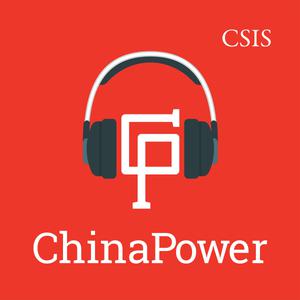 ChinaPower
ChinaPower
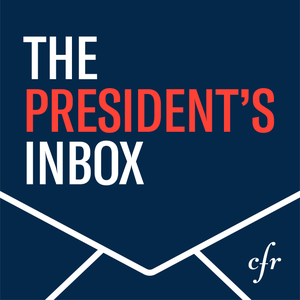 The President’s Inbox
The President’s Inbox
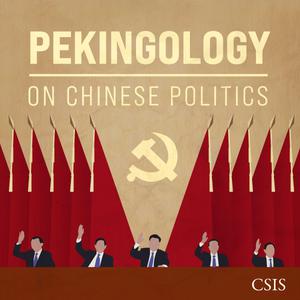 Pekingology
Pekingology
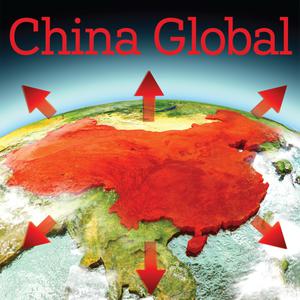 China Global
China Global
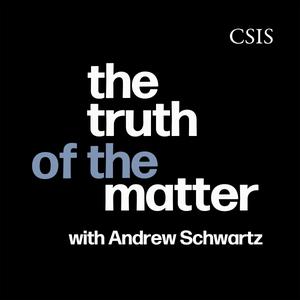 The Truth of the Matter
The Truth of the Matter
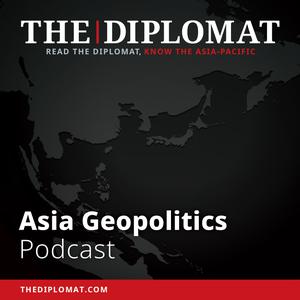 Asia Geopolitics
Asia Geopolitics